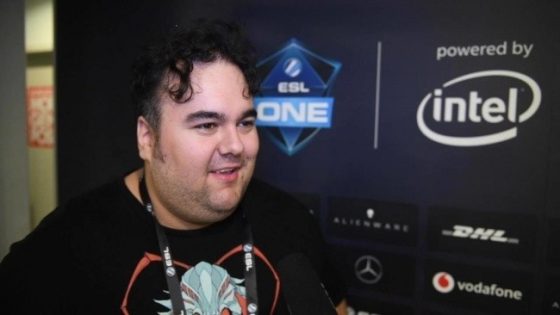
Noxville Reveals the Cracks in Dota 2 Esports Ecosystem
| Tags: Dota 2
| Author The News One

Ben “Noxville” Steenhuisen, known for his expertise in Dota 2 statistics, has shared his ideas on how to transform the Dota 2 Esports ecosystem
In response to a tweet by former TI winner Peter “ppd” Dager on the 4th of October, Ben “Noxville” Steenhuisen, a respected analyst well-versed in the intricacies of Dota 2, has made a significant contribution to the ongoing dialogue surrounding the future of Dota 2 esports.
Ppd's tweet read, “Back in 2018, I dreamt of a grander vision for Dota 2 esports. We settled for what Valve offered instead. With the DPC chapter closed, can we seize our true potential this time? Would you back a player-led tournament initiative?“
Back in 2018, I dreamt of a grander vision for Dota 2 esports. We settled for what Valve offered instead. With the DPC chapter closed, can we seize our true potential this time?
Would you back a player-led tournament initiative? #dota2 #esports pic.twitter.com/C0bUKdSumZ
— Peterpandam ⌐◨-◨ (@Peterpandam) October 3, 2023
Expanding on the ongoing discourse, Ben “Noxville” Steenhuisen has shared an inspiring vision. He advocates for the formation of a Player Union (PU) and the establishment of a central “esports body” to usher in an era characterized by greater transparency, fairness, and representation in the continually evolving Dota 2 competitive arena. He discussed this topic in a thread on the Dota 2 subreddit.
Contents
What Problems did Noxville Identify in the Current Dota 2 System?
Noxville holds the view that the primary factors contributing to the instability in the competitive Dota 2 scene include the existing Dota 2 economy, Valve's centralized decision-making approach, and the significant influence wielded by prominent teams.
A Flawed Trickle-Down Economy
Noxville draws attention to a critical issue of accountability and distribution within the Dota 2 competitive landscape. The prevailing structure appears to favor elite teams, leaving a noticeable gap for emerging and mid-tier talent. This imbalance, he argues, necessitates a thorough reevaluation and potential reforms to ensure a more equitable distribution of resources and opportunities throughout the Dota 2 esports ecosystem. Such changes could serve to foster a healthier and more sustainable competitive scene for all participants.
Perceived Centralized Decision-Making at Valve and the Supposed Leverage of ‘Top Teams'
According to Noxville, a central and concerning issue revolves around the apparent concentration of decision-making power within Valve, predominantly in the hands of a select group of top players and elite teams. This consolidation of influence has seemingly given rise to a Dota 2 ecosystem that primarily serves the interests of these privileged few, as well as the company itself. This exclusive focus on the elite has potentially marginalized the broader Dota 2 community.
What Should be Done?
To address the challenges facing the Dota 2 Esports ecosystem, the analyst recommended the following remedial steps:
Form A Multifaceted Player Union
Noxville's perspective takes into account previous attempts within the esports community to establish talent unions. While acknowledging these endeavors, he outlined the significant challenges that have historically impeded their success. Among these challenges were allegations of intervention by certain talent figures, instances of blacklisting union leaders, and a lack of unified support from the broader community.
His critique underscores the importance of addressing the power dynamics within Dota 2 esports to cultivate an environment that fosters cooperation and unity among all stakeholders. It highlights the need for a more inclusive and collaborative approach that transcends individual interests and promotes the long-term health and sustainability of the competitive scene.
Noxville gave strong support to the idea of a Player Union (PU), albeit with a unique twist. He suggested implementing a diverse membership structure, resembling that of a labor union, featuring permanent, temporary, and broad representation. The PU's central mission would revolve around the establishment of consistent event standards. Should a tournament organizer fail to adhere to these standards, all PU members would jointly abstain from participation.
To mitigate conflicts of interest, Noxville proposes that the Player Union refrains from organizing their own events. Instead, he envisions the creation of a central “Esports Body” dedicated to Dota 2. This entity would bring together stakeholders, such as the Player Union and Valve, while maintaining a clear separation from event management. The Esports Body would serve as an impartial overseer, responsible for upholding fairness, addressing player representation issues, and managing the competitive environment.